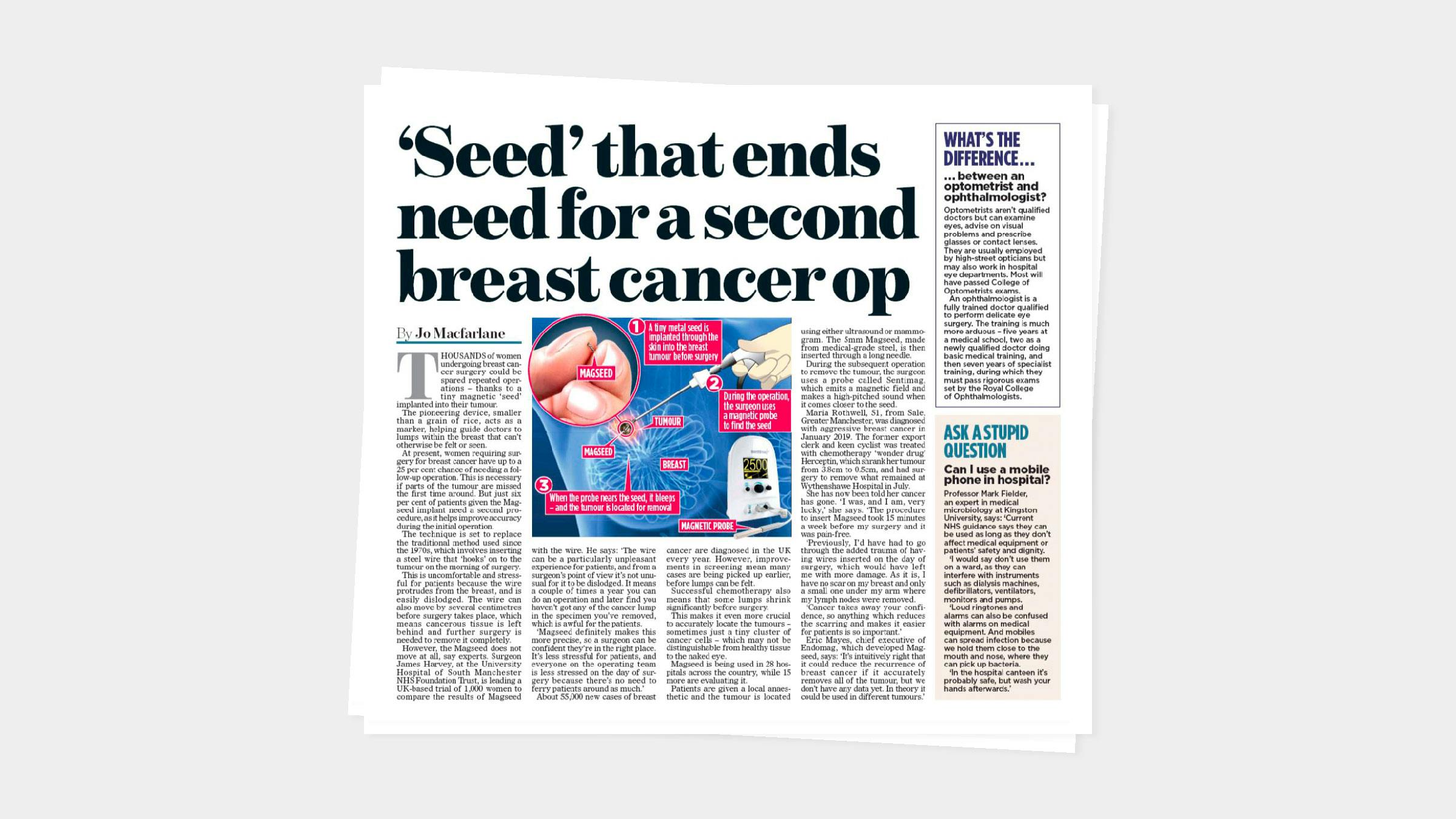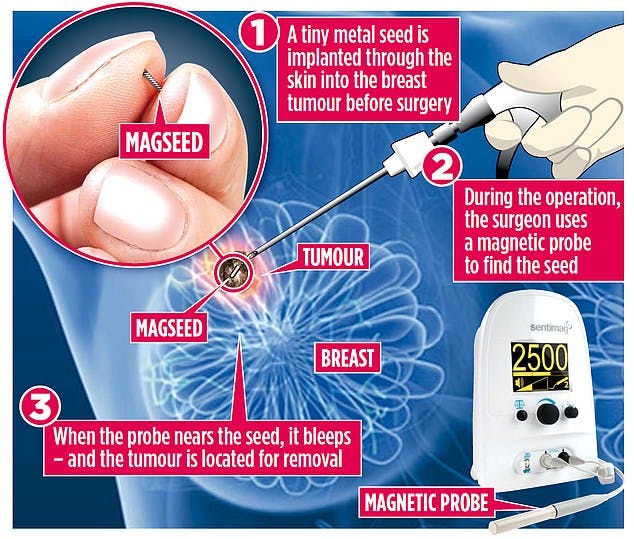Magseed® marker featured on world’s largest newspaper website

On Sunday February 9th, our Magseed® marker was featured in a story in the health section of one of the UK’s largest newspapers, The Mail on Sunday.
The article featured an interview with Maria who was diagnosed with aggressive breast cancer in January 2019.
Maria was asked about her experiences with the Magseed® marker, saying: "the procedure to insert Magseed took 15 minutes, a week before my surgery and it was pain-free."
Previously, I’d have had to go through the added trauma of having wires inserted on the day of surgery, which would have left me with more damage. As it is, I have no scar on my breast and only a small one under my arm where my lymph nodes were removed.
Cancer takes away your confidence, so anything which reduces the scarring and makes it easier for patients is so important."
The UK has already seen more than 30 hospitals take up the Magseed® marker since we announced its European launch just over two years ago.
Here's a useful graphic, created by The Mail on Sunday, to help understand the purpose and usage of the Magseed® marker:

In the article, Breast Surgeon Dr. James Harvey from Manchester University NHS Foundation Trust is quoted discussing one the key benefits to the Magseed® marker: how it does not move (migrate) from where it was placed:
“The wire can be a particularly unpleasant experience for patients, and from a surgeon’s point of view, it’s not unusual for it to be dislodged. It means a couple of times a year you can do an operation and later find you haven’t got any of the cancer lump in the specimen you’ve removed, which is awful for the patients.
Magseed definitely makes this more precise, so a surgeon can be confident they’re in the right place. It’s less stressful for patients, and everyone on the operating team is less stressed on the day of surgery because there’s no need to ferry patients around as much.”
We're pleased to see our Magseed® marker being discussed by the UK’s second-largest national Sunday newspaper reaching two million households in print, as well as the MailOnline, which is reported to be the world’s largest newspaper website.